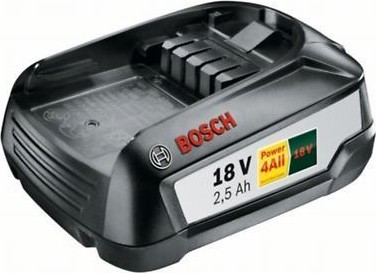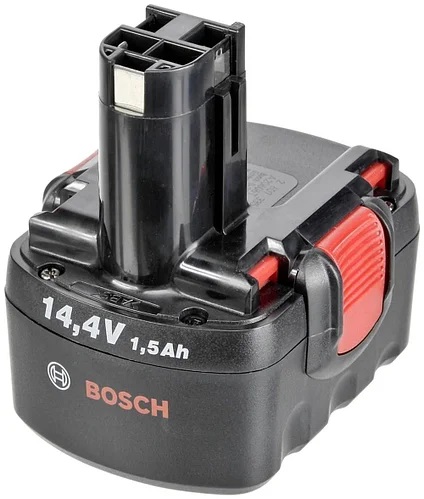Li-ion batteries - are they durable? How many charge cycles? Should I give up the cord? Bosch, DeWalt, Metabo, Makita, Milwaukee and Ridgid are ready to answer all your questions.
Battery tools have come a long way over the last decade. Switching to lithium-ion batteries as an energy storage device instead of old nickel-cadmium batteries allows you to increase productivity and battery life. This happens so everywhere that "cord rejection" has become quite a viable option for many manufacturers of professional tools. Users today can get rid of the need to carry extension cords and generators to the workplace.
Due to the high cost of lithium-ion batteries, the transition to the convenience of their use may be costly. Naturally, before moving on to the line of battery tools, a professional will consider how good an idea it is to buy a wireless tool, how long can the battery last? How many charging cycles can I expect from the battery? What is the difference between lithium-ion batteries? In short, how many lithium-ion batteries are really enough?
We talked to product managers and company executives Bosch, DeWalt, Metabo HPT (previously Hitachi), Makita, Milwaukee and Ridgid to get answers directly from manufacturers. And although their answers +/- differ, they agreed on the main points.
Let's start with the storage of batteries. How long they work when using them is one thing, but what about the time they are on the shelves? The shelf life of the battery is affected by a number of external factors. What was the state of the charge when it was stored? Will the user store the battery at higher or lower temperatures? Will it be stored in a tool, on a shelf or in a charger? Who produced the internal electronics and how well does it control the current inside the unit?
Of course, if the battery runs out below a certain level, it will stop charging at all. This signals the end of its service life, although some discharged batteries can be "resurrected". The time required for this depends, again, on the production processes and components, as well as on these external factors.
With all of the above, there is still one opinion regarding the average shelf life of the battery. If you take care of the proper storage of batteries, you can expect that they will last from 3 to 6 years on the shelf. What is the most important conclusion? Keep batteries away from heat sources. Extreme heat is the most important enemy of the service life of lithium-ion batteries.
How many charging cycles can I count on?
Again, the answer to this question largely depends on a number of variables. An important role is played by the configuration and capacity of the battery, as well as the ambient temperature during storage.
User behavior also affects how many charging cycles the battery can go through before it runs out. It is important - you really should not use a battery instead of a hammer. Blunt force trauma will negatively affect the service life of lithium-ion batteries.
So, in terms of charging cycles, how long will lithium-ion batteries last? Despite the aforementioned variables, most of our manufacturers state that users should expect more than 1000 charging cycles.
What is the charging cycle?
In part, it depends on how the manufacturer determines the charging cycle. As a rule, one charging cycle means discharging the battery and re-charging it. However, most batteries calculate one full charge cycle each time you put the battery on the charger. This happens regardless of how much you really need to charge the battery.
Makita says they use a "smart" system that takes this into account. Their chargers and batteries use a communication system that recognizes the current charge level and battery temperature. The charger then adjusts the optimal current, voltage and temperature to charge the battery. This process prolongs the battery life. This also increases the number of charging cycles that the battery can withstand. This is just one example of why you should stick to the original batteries and chargers of the manufacturer.
As for the expected number of charging cycles, most manufacturers fall into the camp of 1000 to 2000 charging cycles. This is a daily battery charge for 3 to 6 years. We would recommend living within expectations, leaning towards the shorter side of this equation.
What is the service life of lithium-ion batteries compared to nickel-cadmium?

 We know that nickel-cadmium batteries have long been out of use, for more than ten years. However, it serves as a kind of starting point in some people's thinking. Since a lithium-ion battery has a higher energy density, a comparable nickel-cadmium battery will be larger and heavier. From a functional point of view, the lithium-ion battery also does not experience voltage drops when depleted. So what about the expiration date?
We know that nickel-cadmium batteries have long been out of use, for more than ten years. However, it serves as a kind of starting point in some people's thinking. Since a lithium-ion battery has a higher energy density, a comparable nickel-cadmium battery will be larger and heavier. From a functional point of view, the lithium-ion battery also does not experience voltage drops when depleted. So what about the expiration date?
Both types of batteries self-discharge during storage. However, NiCad self-discharges at a rate of about 1-3% per day. Because of this, an unused nickel-cadmium battery often required recharging every couple of weeks or so, even if you never used it!
Lithium-ion batteries self-discharge much more slowly. In fact, almost imperceptibly. The speed at which this discharge occurs largely depends on the quality of the packaging design. Lithium-ion batteries use much more technology than nickel-cadmium batteries. In fact, the comparison seems a bit unfair and outdated. Many manufacturers use overload and overheating protection for their lithium-ion batteries. All these technologies protect the battery. They also extend the expected life cycle. Nickel-cadmium and nickel-metal hydride batteries usually do not have such protection.
So, while some might argue that nickel-cadmium batteries also had to last up to 1000 charging cycles, you had to charge these batteries much more while using them. I also had to deal with the terrible "battery memory effect".
So, how long do lithium-ion batteries last? Summing up, we can say that the minimum that most manufacturers expect from their batteries is about 3 years or 1000 charging cycles (whichever is less). The companies Bosch, DeWalt, Metabo, Makita, Milwaukee Tool and Ridgid give their lithium-ion batteries 2-3 years warranty. This is a really good indicator of their minimum expectations from these devices.
If you care about your batteries, there's no reason not to expect them to last at least that long or longer.

Покупал бытовой шурик Калибр 18в/1,3а с красными аккумами литий и Бош профессионал синий гайковерт 10,8в/1,3а в далеком 2012 году . Профессионально не использовал оба . Разве Бош использовался и в хвост , и в гриву . Даже при минус 10 аккумы Бош держались при закручивании саморезов до 50 мм чуть меньше , чем летом . Бытовые у Калибра сдавались через несколько минут , если хранились долго на минусе , просто не работали . На сегодняшний день аккумы пока работают . Про время работы сказать ничего не могу . Тем более Бош после зимнего хранения теряют кратковременно емкость , но 2-3 цикла восстанавливают характеристики . Так что 10 лет пока полет нормальный .